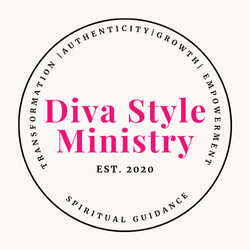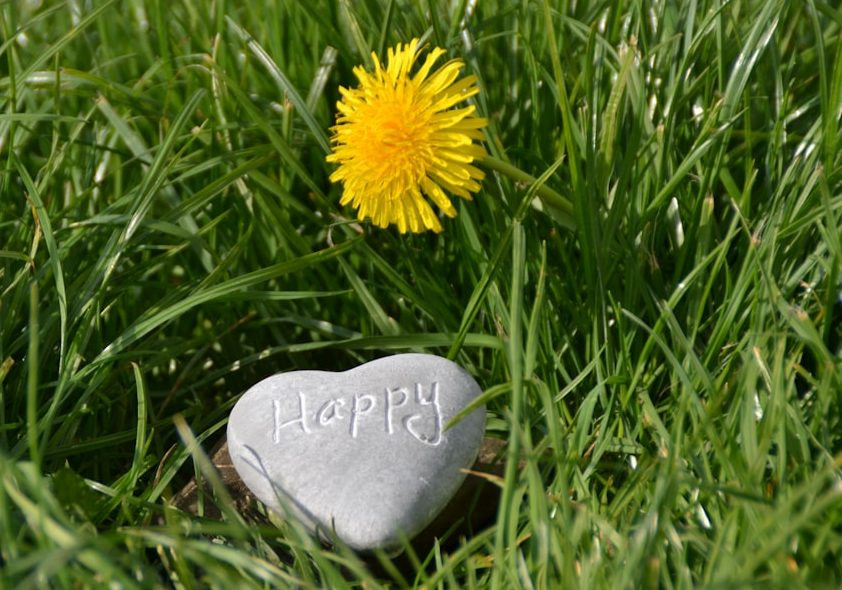I wrote and delivered this sermon before I was ordained – you might see me refer to myself as a Candidate Minister in the text. I was not yet Reverend Daniels, but I was on the road to earning that title.
You might think you know what happiness is. You might even think it’s an odd question to ask – what IS happiness?
Happiness is defined, according to Dictionary.com, as:
The quality or state of being happy
Or good fortune; pleasure; contentment; joy.
Words that are related to happiness include prosperity, enjoyment, glee, delight, well-being, jubilation, gladness, cheerfulness and playfulness. All positive words, and ones the average human being would say they can’t get enough of.
Intuitively, happiness is a feeling we get as human beings that we associate with having joy. It’s the opposite of feeling depressed, down or sad. Being happy is something that people will generally consider good while being sad is not so great.
But there are degrees of happiness and different people feel it in different ways. A perfect example of this comes from the sitcom Everybody Loves Raymond. Raymond’s parents were constantly bickering. Everyone believed they hated each other.
But in one episode it was revealed that their behavior towards each other is actually how they are happy. The back and forth digs that they give each other are expressions of affection in their eyes.
There are people who are not very good at showing emotion. They could be elated and yet give no outward expression – no smile, no twinkle in their eyes – to show for it. You probably know a person or two like this. It’s hard to read them, too – you may think they aren’t happy and yet, they are quite the opposite. They simply aren’t the type of people to give you an overt indication of their emotional state.
Then, there are people who go way overboard and show excessive, almost maniacally happy emotions. They become so happy that they seem almost unreal – no one can be that happy all the time, right? They are so perky that it is hard to take them seriously.
Wikipedia even defines happiness as an emotion ranging from contentment to immense joy. Even this definition allows for varying degrees of happiness. There is no one right answer as to what happiness means to any individual, just as there is no one definition on how happiness should be expressed. It’s as personal as any other emotion, and will show up differently for different people.
Most people will agree that when it does occur, happiness makes you feel good. It is something that people try to have and hang on to for as long as possible, even though it’s not generally possible for it to go on indefinitely. There is going to be a certain point or event that changes the circumstances, and you’ll lose the feeling of happiness. Naturally, you want to try to maximize the good feelings of happiness whenever possible, for as long as you can.
Happiness has also been shown to be better for your overall health. Doctors have long believed that patients that maintain a positive and happy outlook during serious medical conditions have a much better chance of recovery than people that are gloomy about their prospects.
We can take inspiration and generate feelings of happiness from what goes on in our lives – a phone call with friends or family, time spent with loved ones or pets, and our society’s poets, prophets and wordsmiths have written volumes about happiness:
“Thousands of candles can be lighted from a single candle, and the life of the candle will not be shortened. Happiness never decreases by being shared.”
Buddha
“If you want happiness for an hour — take a nap.’
If you want happiness for a day — go fishing.
If you want happiness for a year — inherit a fortune.
If you want happiness for a lifetime — help someone else.”
Chinese Proverb
“It isn’t what you have, or who you are, or where you are, or what you are doing that makes you happy or unhappy. It is what you think about.”
Dale Carnegie
“Sometimes your joy is the source of your smile, but sometimes your smile can be the source of your joy.” – Thich Nhat Hanh
But like with most things in life, there are also misconceptions about happiness that can and do trip people up, and if you’re not aware of them, or fall into them by accident, they may even be making you unnecessarily UNhappy.
So, let’s detail a little of this out – exactly what isn’t being happy?
- Happiness isn’t getting everything you want
You won’t find happiness in getting everything you want or in always getting things your way. Money doesn’t buy true happiness, even though many people would say they’d like to prove that theory wrong by having tons and tons of money to spend any way they’d like.
As a matter of fact, getting a raise – arguably a positive event – or coming into an unexpected windfall of thousands of dollars can increase your dissatisfaction with your life. Why? Because when the money arrives, or perhaps even before it arrives, your expectations expand to match or exceed whatever money you have. That new car or bigger house or fancier wardrobe will soon start to feel like not enough – just ask any of the people featured on “Lottery Nightmares” or other such shows.
You get the same kind of goal displacement when things go your way. It’s human nature to keep pushing the boundaries, looking around the next corner, and the next, and asking for more, more, more!
- Happiness isn’t feeling good all the time
News Flash: people who are genuinely happy don’t live in a constant state of ecstasy! Life just doesn’t work like that. Some days you feel great, on top of the world and unstoppable…other days not so much – you may feel like the world is on top of YOU.
And everyone has terrible, horrible, no good, very bad times, that’s just the way it goes, and we hope that those times don’t last long and that our reserves of strength last throughout the storm until we can get to the other side.
Happiness is way more than just feeling good. It means feeling contented – being satisfied with your life right where you are, just as you are, and living a meaningful life.
- Happiness isn’t a fixed endpoint.
Happiness isn’t something you arrive at, like a travel destination, or you achieve it, and then it’s done, forever and for always. It’s not something you can check off your list!
Happiness is more like a habit you can learn, a way of looking at the world and your relationships. and being generally happy about the direction your life is going in and how your activities are going.
We’ve talked before about habits – about how it takes 21 to 28 days to create a new, positive habit with consistent repetition of the positive behavior that you want to become your habit.
Imagine how much better your life could be if you practiced intentional happiness for the next 21 to 28 days – if every single day you found a way to make yourself happy. Not hysterically happy, but just a little bit happy to begin with.
Time spent talking with loved ones can make you happier; time spent with pets or puttering around the house can make you happier; time spent reading a good book, writing in your journal, or researching on the internet can also make you happier.
It doesn’t have to be a big, unusual occurrence or permanent change in your life to make you happier. Seeking happiness every day isn’t a bad way to spend some of your time, don’t you think?
So, with all that’s been said, where does that leave you?
Studies have shown that happiness comes from a combination of factors, from finding deep satisfaction and meaning in your life to looking for the things that are good, not focusing on lack or what you haven’t achieved.
True, lasting happiness seems to depend on some things such as mindset, expectations and how you feel day by day.
- If you put more store in relationships and connections with the people you love, you’ll be happier than if you expect possessions – things – to make you happy.
- If you expect things to go your way they often do, and if you notice the things that you’re grateful for, you’ll find more of them. If you need things to go your way all the time, then I’m afraid you’re going to have to prepare for disappointment.
Truly happy people are at peace with the ups and downs of life and find joy and contentment whatever their circumstances might be, and that sounds to me like the recipe for a generally happy life.
May it ever be so. Amen, Ashe, Blessed Be






